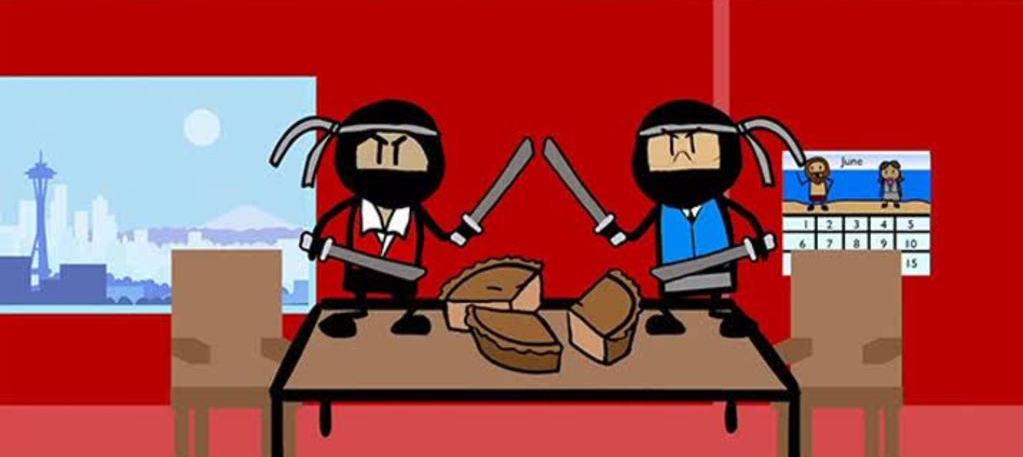The labor law gave employers the right to influence employees by disciplining and material liability. For workers in certain sectors of the economy, there are special charters and regulations providing for a specific procedure for imposing disciplinary responsibility and approved at the level of the Government of the country. Such documents exist for customs, railway, police and others.
What is a misconduct?
Regardless of the form of ownership of the enterprise, labor discipline is the most important condition for the implementation of labor activity. At the level of labor legislation, an employee has an obligation to observe discipline and rules of conduct at the workplace. Such requirements, in addition to the Labor Code, are fixed in job descriptions, labor rules, labor agreements and other local acts.
At the same time, the employer does not have the right to demand compliance with the rules and bring the employee to disciplinary and material liability if he has not provided the necessary working conditions, including providing for domestic needs.
Responsibility for violation of discipline within a particular enterprise is a conviction for misconduct. The main thing is that responsibility can only occur if the illegal behavior is really committed: absenteeism or being late for work without good reason, being at work in a state of intoxication, and other offenses. And such actions must be necessarily associated with work.
There are two types of disciplinary liability:
- general, applicable to all employees, regardless of their position or specialty;
- special, which exists for a certain circle of specialties and positions.

Disciplinary action
The employer has the right to impose on the employee for committed violations of labor discipline the following types of disciplinary sanctions:
- comment;
- rebuke;
- dismissal.
Separate regulatory acts approved at the government level may also provide for other penalties, for example, for employees of the railway in the form of suspension from work for a certain period or demotion. Other types of disciplinary sanctions that are not provided for by applicable law are considered illegal and the employee has the right to appeal against them in court.
The main rule is that for one violation there can be only one penalty, which is mandatory drawn up by order or order. In addition, if the employer decided to punish the employee, then he can recover only for 6 months from the date of the misconduct.

Comment
Such a penalty can be imposed only for a single offense, if the employee committed the same act, then only another type of penalty is applied. To make an order, the employer must have irrefutable evidence. This may be an act of absence from work or recording from video surveillance cameras.
When making a comment, the employer has the right to deprive the offending employee of the bonus and bonus payments. The action of such a penalty is 1 year.If an employee has not committed an offense during this period, the comment will be automatically canceled. In case of early withdrawal, the employer must issue an appropriate order.
Rebuke
Another type of disciplinary, material and administrative liability. A reprimand is a punishment for violating the requirements of the job description or internal regulations. Depending on the degree of violation, the reprimand may be:
- simple;
- strict.
However, before issuing a reprimand, the employer must mandatory record a violation, as well as prove the guilt of the employee.
First of all, an explanation should be sought from the employee. Only after it becomes clear that there are no good reasons for the violation, the administration can issue an appropriate order, the text of which is communicated to the employee by signature. This type of penalty is imposed in case of a misdemeanor of moderate gravity, which did not entail major damage to property.
However, this type of disciplinary and material liability can be applied to the employee only for a month from the date of commission. The exception to this rule is only one - if the misconduct was identified in the process of conducting an audit or audit, then a reprimand may be made within 6 months. As with the remark, a reprimand is issued solely for one misconduct.
Records of comments and reprimands are not recorded in the work book. If an employee committed a second violation, then another penalty may be applied to him - dismissal.

Dismissal
In principle, this is an extreme form of disciplinary and material liability. For this measure, the main thing is not the number of misconduct, but their severity. Although in practice, usually before giving up a person is given another chance for correction.
In order to dismiss an employee, the employer must not only prove the fact of misconduct, but also the severity.
In addition to standard situations (absenteeism or being late), you can dismiss the director of the branch if it is proved that he caused material damage to the enterprise through its unlawful use, the face of the teacher for repeated gross violation of the charter of the educational organization, and so on.
However, it is not considered an offense if a person refused to perform work that is dangerous to his health or life, or did not want to do something that is not provided for by the labor agreement.
Holding liable and disciplinary by dismissal does not entail non-payment of wages for the time actually worked. The employer is also required to pay compensation for unused vacation days.

Material liability
This term implies reimbursement by an employee of material damage caused by him.
However, this concept of disciplinary and material liability implies that it can only be applied in case of direct damage to the employer. In addition, the administration of the enterprise must prove that it was the inaction or action of a particular person that led to material damage.
If an employee has already been brought to disciplinary liability for such an offense, then this is not a reason for not imposing liability on him.
At the same time, the amount of damage that an employee can compensate is limited only by his average salary. If the damage exceeds the amount of wages, then it is recovered in parts. The labor legislation provides for two types of liability:
- Limited, that is, liability solely within the framework of the average wage.
- Complete. Responsibility, which bears the full compensation of damage, regardless of the size of wages.
In turn, full liability may be:
- collective;
- individual.

Composition
The composition of the property offense is formed of four factors:
- Damage must be direct and valid.
- It must be proven that there were unlawful acts of the person.
- There must be a causal relationship between the damage caused and the behavior of the offender.
- Guilty employee, albeit as the subjective side of the issue.
Full individual responsibility
The disciplinary and material liability of officials is a rather complex and ambiguous concept, especially when it comes to full material liability. It can occur only in cases strictly defined at the level of legislation:
- if the guilt of the guilty employee has been proven in court;
- if at the level of legislation for a particular position such responsibility is provided;
- if the employer and employee have concluded an agreement on full liability;
- in cases when the damage is caused not during working hours and not in the performance of official duties;
- if the employee received material assets by a single power of attorney, waybill and so on;
- if the fact of intentional acts or omissions of the employee is proved, which led to damage to property (for example, damage to the measuring device that was issued for the performance of their official duties);
- in cases when the damage is caused by an employee who is intoxicated.

Collective or team responsibility
This type of liability is provided for those cases when it is not possible to differentiate liability for material damage caused between members of the same team or workshop. This type of responsibility at the enterprise should be introduced on the basis of a collective agreement, by coordinating its provisions with the collective and signing an agreement on full liability. Also, the company must issue an appropriate order before concluding an agreement with the brigade.
The main thing is to remember that it is impossible to conclude the last type of contract with persons who have not reached the age of 18.
The contract for full team responsibility can be concluded only for a certain list of works, which is stipulated by Decree of the MTSD of the Russian Federation No. 85.
In cases where the team does not agree with the assessment of the value of material damage, then its size can be determined solely in court. In this situation, the employee still has the opportunity to prove his innocence, as the judge will identify the degree of guilt of each individual employee.

Instead of a conclusion
The material and disciplinary liability of the parties to an employment contract is a quivering issue for both parties. However, employees are always more worried because they feel less secure. But employees should remember that unlawful acts or omissions on the part of the administration of the enterprise can be appealed in court, including compensation for material and moral damage. But, as in the case of the employer, the employee must prove the severity of the guilt and the guilt of the enterprise administration itself.
